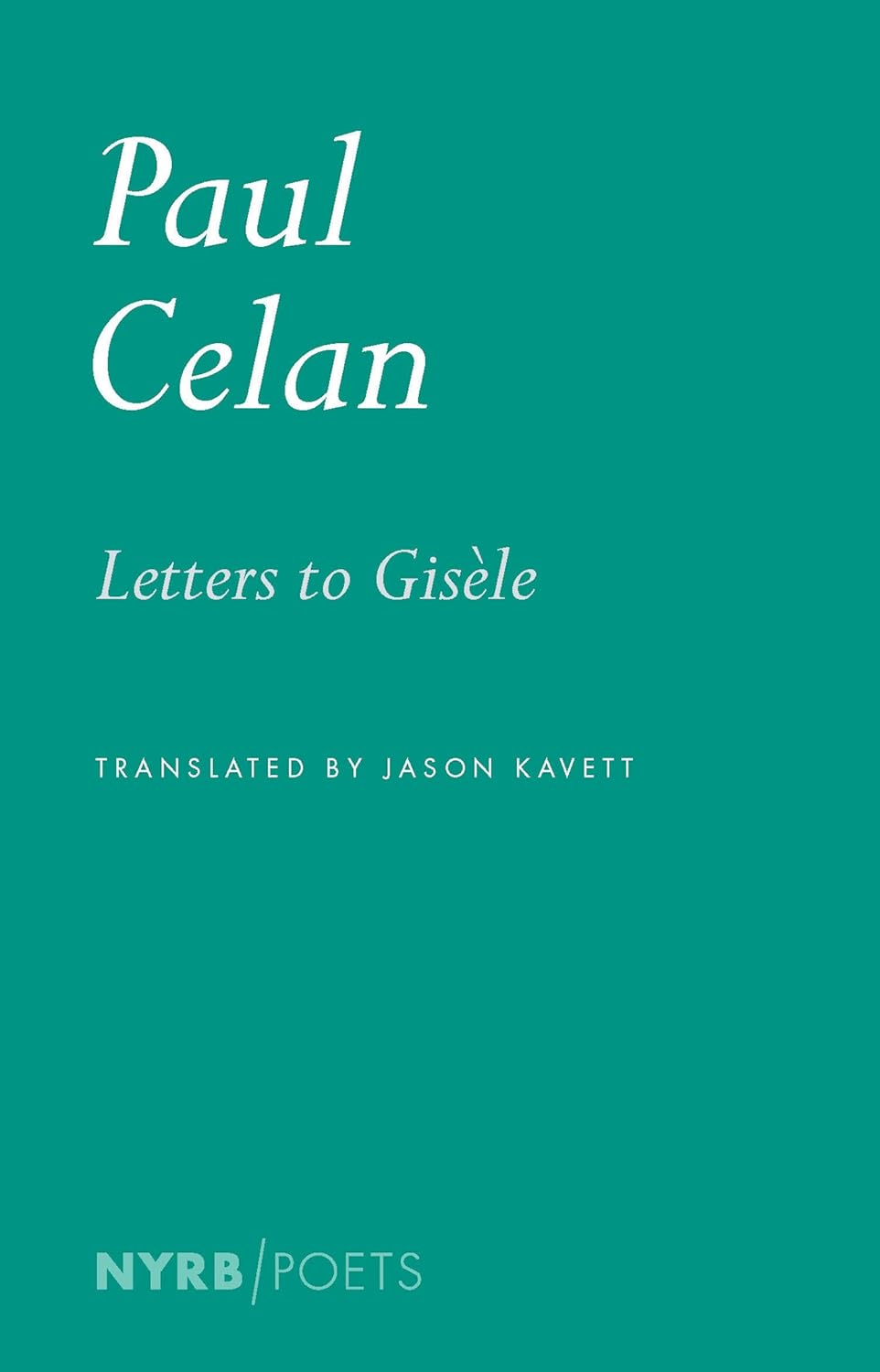1951–1970
Paul Celan
Translated by Jason Kavett
NYRB Poets ($28)
The work of poet Paul Celan (1920-1970) was inherently a site of conflict between his Jewish identity, his East European heritage, and his ill-fated predicament of composing poems in the German tongue post-Holocaust, which saw his parents murdered during Nazi internment and his own detention in labor camps. There was never a chance of his recovering from the profound psychological and spiritual damage endured during his youth. While this has long been recognized, Letters to Gisèle presents an opportunity for anglophone readers to glimpse Celan’s personal tribulations within the context of his poetic calling as they played out in his relation to his wife, the artist Gisèle Celan-Lestrange, and their son, Eric.
Their correspondence is full of affectionate exchanges, especially early on, where in one instance Celan refers to Gisèle as “my darling little branch.” Celan, however, was always haunted by his past, even as he regularly traveled to Germany from Paris and enjoyed a welcome reception when he gave public readings of his work. As translator Jason Kavett notes in an introduction, “a dark thread that runs throughout the correspondence originates in the false charge first leveled in 1953 by Claire Goll, the widow of the poet Yvan Goll, that Celan had plagiarized her husband’s work—a charge that gained some traction in Germany and that was a personal catastrophe for Celan, who saw it as part of a larger anti-Semitic campaign.” This “false charge” challenging the authenticity of his work plagued Celan for the rest of his life.
Poetry for Celan was a serious matter, involving confrontation with harsh realities [(“What to say, what to say? (Poetry, an affair of abysses.)”]. In the final years leading up to his suicide, he was repeatedly hospitalized for violent acts during delusional psychotic breaks when he feared for his own security or that of Eric. On separate occasions in such states, he attacked Gisèle, stabbed himself in the chest (puncturing his lung), and while vacationing alone went after a fellow guest where he was staying. Throughout these months-long periods of institutionalization, Celan never ceased working on poetry (“two poems yesterday and one today—in all I have written fourteen since I have been here”). His self-understanding hung upon poetic activity as a necessity of existence: “As I see my state of being, I need books, a place to work, a bit of human contact, the deepening and enlarging of my work as a translator of poetry.”
Celan idealized Gisèle, writing to her, “You are courageously the wife of a poet. I thank You for being that, so valiantly.” For her part, she willingly filled that role, continuing to support and encourage him during his hospitalizations: “you will see, your strength will come back, and your memory and concentration and inner calm, through work too you will live again.” Initially she committed herself to enduring his fate, stating, “Everything that happens to you, understand, affects me in the deepest part of myself and your wounds, your drama, your fate, I live through them too.” But she finally began to falter under the strain. When she announced, “I am leaving tomorrow evening, before my nerves go completely,” a footnote informs us that Celan underlined the statement, adding in the margin “Thursday!”
While Celan only wanted to ease Gisèle’s troubles (“I would like to contribute, calmly, to your calm”), his condition left him incapable of taking the necessary steps. When Gisèle found an apartment where he could live alone so they could have time apart, he resisted. Still, she continued to attempt to steer him in a positive direction, urging him “to also see the things that are not bad, they exist.” Celan was, in fact, capable of such observations himself, which can be seen in a letter to Eric from July 29, 1969: “I have come back from a long walk in Paris: wind, not too much, a light, fine rain—we could have walked together, I thought about that.” And later the next month: “Facing the snow, / a thought for / you.” Yet, behind such observations was the realization that nothing would keep the poet from his fate; Celan drowned himself in the Seine less than a year later.
Click below to purchase this book through Bookshop and support your local independent bookstore:
Rain Taxi Online Edition Summer 2025 | © Rain Taxi, Inc. 2025

